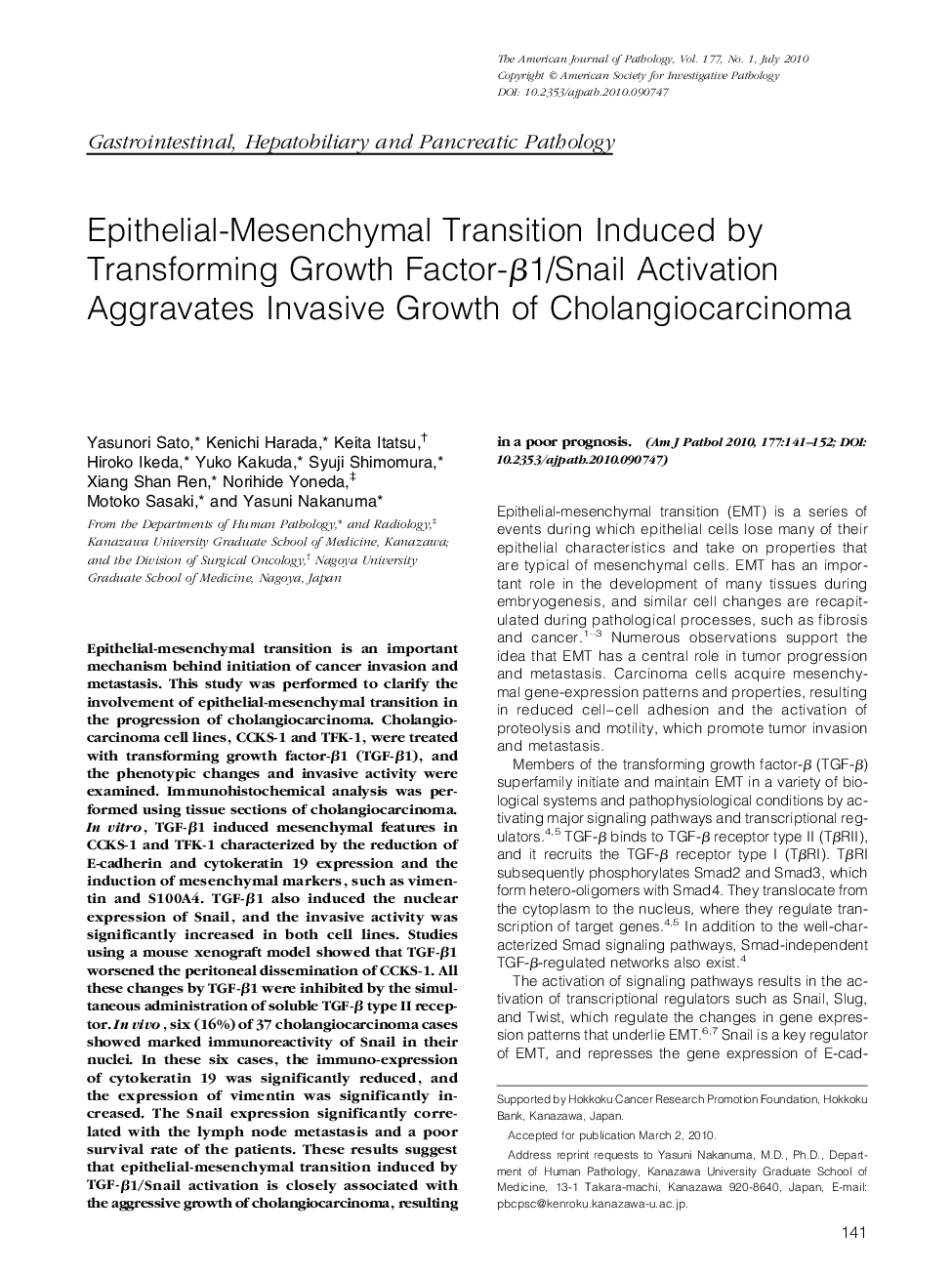| Article ID | Journal | Published Year | Pages | File Type |
|---|---|---|---|---|
| 5935247 | The American Journal of Pathology | 2010 | 12 Pages |
Epithelial-mesenchymal transition is an important mechanism behind initiation of cancer invasion and metastasis. This study was performed to clarify the involvement of epithelial-mesenchymal transition in the progression of cholangiocarcinoma. Cholangiocarcinoma cell lines, CCKS-1 and TFK-1, were treated with transforming growth factor-β1 (TGF-β1), and the phenotypic changes and invasive activity were examined. Immunohistochemical analysis was performed using tissue sections of cholangiocarcinoma. In vitro, TGF-β1 induced mesenchymal features in CCKS-1 and TFK-1 characterized by the reduction of E-cadherin and cytokeratin 19 expression and the induction of mesenchymal markers, such as vimentin and S100A4. TGF-β1 also induced the nuclear expression of Snail, and the invasive activity was significantly increased in both cell lines. Studies using a mouse xenograft model showed that TGF-β1 worsened the peritoneal dissemination of CCKS-1. All these changes by TGF-β1 were inhibited by the simultaneous administration of soluble TGF-β type II receptor. In vivo, six (16%) of 37 cholangiocarcinoma cases showed marked immunoreactivity of Snail in their nuclei. In these six cases, the immuno-expression of cytokeratin 19 was significantly reduced, and the expression of vimentin was significantly increased. The Snail expression significantly correlated with the lymph node metastasis and a poor survival rate of the patients. These results suggest that epithelial-mesenchymal transition induced by TGF-β1/Snail activation is closely associated with the aggressive growth of cholangiocarcinoma, resulting in a poor prognosis.
